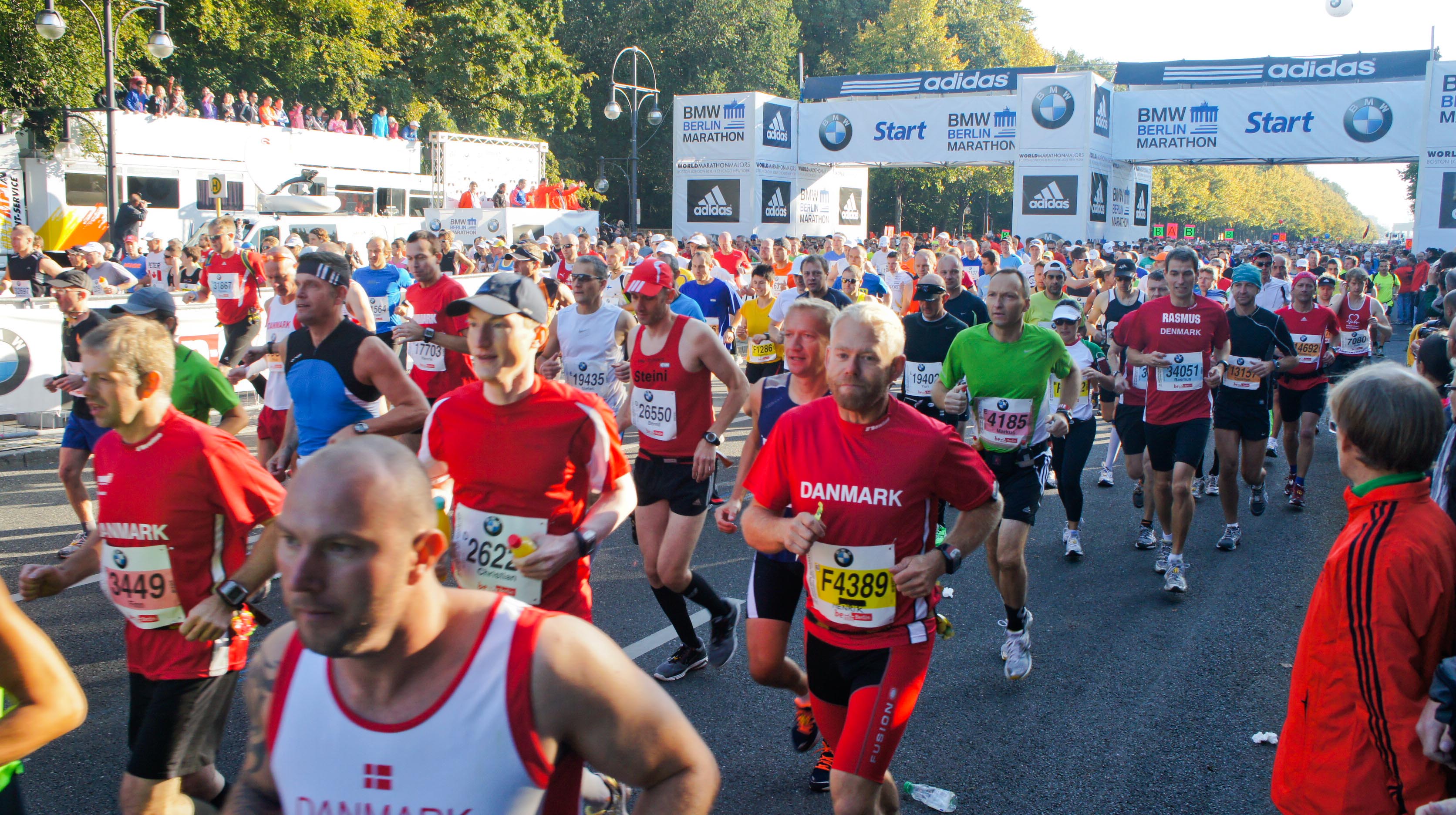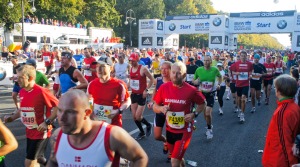Should a marathon record matter to the rest of us?


I’d like to invite you to a time-travel trip. We are going back to Berlin in September of 2011. Let’s land right at Tempelhof, the old Allied airport, where the Cold War air bridge kept West Berlin connected to the rest of the West through endless supply flights. The airport is out of function now, turned into a public park, but in its massive hangars is where I’m taking you. The runners expo ahead of the Berlin Marathon is being held here. The complex is enormous, one huge hangar connecting to another, and a third and so on, each linked to the next by two sets of large doors. You can walk until your legs start to tire.
The very last of those interconnected hangars is where we pick up our race kits. That’s also where Adidas, the gear sponsor of the marathon had set its booth. And there, in a glass box, a worn yellow shoe stands on display. It was worn by Haile Gebrselassie right here in Berlin in 2008. In it, king Haile, the absolute ruler of distance running, ran the world record time of 2:03:59.

The king himself is at the Adidas booth, posing for photographs and signing autographs. The man never stops smiling. But it’s not his trademark smile, or his presence that makes this occasion so exciting; it’s the fact that he is running the Berlin Marathon with the rest of us. He will try, at the age of 37, to break the record one last time.
I pose for a picture next to the shoe and wonder if it’ll still be there next year. Sure, I’d love to see the record broken again, especially by him, but I know it’s a slim chance. That 2:03:59 seems so incredibly fast, I wonder if anyone will ever run faster.
Marathon Sunday is sunny and hot. As my energy melts in the heat I think of Haile. I’m running in his footsteps, although about a full hour behind. I don’t think he can break the record in this weather. And I am right – Gebrselassie pulls out of the race somewhere mid-course. What I am wrong about is the record being broken. Patrick Makau of Kenya ran 21 seconds faster than Haile’s record that day.
In a weird way, I felt proud for running the race in which the new world record was set. Not that I had absolutely anything to do with it. Still, I reserve the bragging rights to be able to say, along with about 30,000 others, that I ran the race in which the record fell.
But, what does it really matter to the rest of us whether some insanely fast runner breaks the record or not? And why should it matter?
I think I speak for many runners when I say it’s a big morale boost for the whole running community. Suffering through a marathon makes us identify with the others who suffered through the same ordeal, even if it only took them slightly over two hours. Although none of us will ever come close to that mark, every time the record inches closer to it, we all walk taller. Maybe just by doing the same thing — by participating, by running the same race — we promote the sport and, in a tiny way, enable the fast guys to continue getting faster. The breaking of the world record is a symbol for each of us breaking through our own barriers and setting new limits. Imagine then what a celebration it will be when we – and I intentionally say we, as a band of runners – push through the line even science once deemed impossible, the two-hour marathon mark. Just like the number of kids kicking the soccer ball radically increases during the World Cup, imagine the tidal wave of new runners lacing up when that happens.
Since Berlin 2011, Gebrselassie has retired from marathoning (though he still runs halfs) and the record was broken two more times, in 2013 and 2014. It now stands at 2:02:57, less than three minutes off the mark. Closer, but still far off.
In order for a human to do this seemingly impossible feat, many things have to come together. If you are, like me, curious about a scientist’s speculation on everything needed for such a dream record, listen to my conversation with Alex Hutchinson, a running scientist and columnist with Canadian Running and other publications, in which he explains, speculates, predicts and contradicts all the factors that could lead to sub-two-hour marathon.


